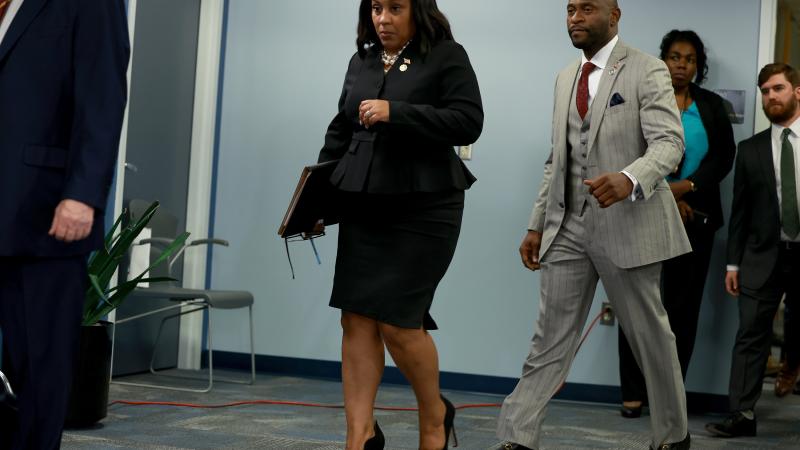Louisiana Gov. Jeff Landry announces plans for tax reform special session
Landry argues the current structure places Louisiana at a competitive disadvantage with neighboring states.
Louisiana Gov. Jeff Landry announced plans to call the Legislature into a special session in November, the third this year, to reform the state's tax system.
Landry and much of his cabinet argue the current structure places Louisiana at a competitive disadvantage with neighboring states, some of which have made recent tax reforms themselves.
"We, in this state, have been on the losing end of an economic game that other states are playing and beating us at today," Landry said during a news conference this week.
He outlined a proposed tax plan focused on reducing personal income taxes and expanding sales taxes to cover more items and services.
"We offer an opportunity to change that playbook so Louisiana can start winning," Landry said.
Under the current system, Louisiana residents pay a progressive income tax, with rates starting at 1.85% on income up to $12,500, 3.5% on income between $12,500 and $50,000 and 4.25% on income above $50,000.
Landry's proposal would eliminate the income tax for individuals making up to $12,500 and impose a flat 3% rate for those earning more.
Landry believes the plan would "provide an immediate increase in take-home pay for every Louisiana taxpayer" and set the state on a path to reducing or potentially eliminating the income tax by 2030.
Landry suggested broadening the tax base by including additional services such as dog grooming, car washes and lobbying, though his plan does not include an increase of the current sales tax rate.
"Your taxation will be driven more by what you choose to buy, rather than by your labor," he said. "I think that's fair. I hate the income tax ... a man and woman's labor should never be owned by the government."
The proposed reforms could also include eliminating the corporate income tax, making permanent the partial business utility exemption, and modernizing the state's constitutional funds to give lawmakers more budgetary flexibility.
Landry argues that the changes will help close an estimated $700 million budget shortfall caused by the expiration of temporary sales taxes while making the state more competitive with fast-growing neighbors like Texas and Florida, both of which have no personal income tax.
"This holistic plan is designed not only to address budget shortfalls, but to catapult Louisiana into the future with increased jobs and economic growth for years to come," Landry said.
The special session is set to convene in November. If lawmakers pass the proposed tax reforms, the final decision will rest with voters in the March election.
In response to Landry's plan, RESET Louisiana has engaged economist Greg Albrecht to conduct an independent analysis of the proposed tax changes and their potential impact on taxpayers.
Albrecht, who previously served as the chief economist for the Louisiana Legislative Fiscal Office, will assess how the proposed personal income and sales tax modifications might affect households across various income brackets.
"An independent review of what those changes mean for taxpayers is key to helping legislators and the public understand the ideas and scrutinize them," RESET stated in a news release.
Albrecht's analysis will focus on the major components of Landry's proposals, with findings expected to be released before the special session convenes.
In recent testimony before the House Ways and Means Committee, experts pointed to the state's complex tax structure as a major factor driving businesses and residents away.
"When companies are looking to relocate, this is the reason they skip over Louisiana," Department of Revenue Secretary Richard Nelson said in previous testimony. "If you go to the Tax Foundation website, they'll say, 'hey, you know, Louisiana has this weird credit, but you probably can't figure it out, so we just say they have an inventory tax anyway.'"
The committee heard from various industry leaders and think-tanks, including the Tax Foundation, the American Legislative Exchange Council, former Rep. Scott Simon, R-Abita Springs, and Jan Moller, many of whom advocated for simplified tax policies.
ALEC's chief economist Jonathan Williams noted the competitive pressure from nearby states with no income tax, like Texas and Florida, which have seen a net increase in taxpayers. Louisiana, meanwhile, has lost nearly 30,000 residents in the last year alone.
There was also a lot of talk about a flat tax, though Moller, the executive director of Invest in Louisiana warned against it, citing Kansas as an example of how a flat tax can go wrong.














